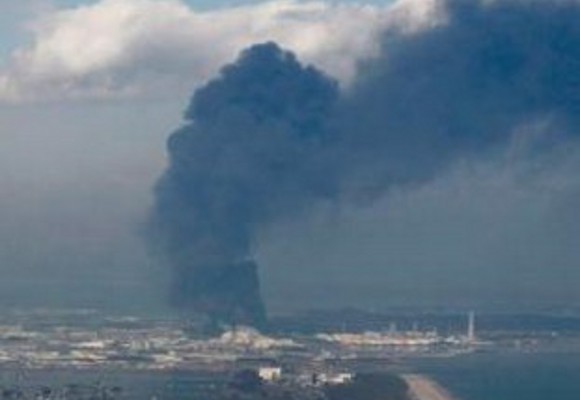 Today, the nation's major sustainable food writers and bloggers will converge on Monterey, California for an incredible, invitation-only sustainable food conference. The event, Monterey Bay Aquarium's Cooking for Solutions, which those who attend say is spectacular, has a new sponsor this year: Kellogg Garden Products. Yes, that Kellogg Garden Products. The very same company that has contaminated "organic" school gardens in Los Angeles with sewage sludge. The company's Chief Sustainability Officer, Kathy Kellogg Johnson, has a knack for befriending "green" organizations and using them to promote her toxic, misleadingly-labeled products to unsuspecting gardeners. In this case, she's listed as a "Silver Sponsor." How much did her company pay to give her such a nice platform, sitting on a panel with Grist's sustainable food writer, Tom Philpott, and telling an all-media audience about the sustainability of Kellogg Garden Products?
Today, the nation's major sustainable food writers and bloggers will converge on Monterey, California for an incredible, invitation-only sustainable food conference. The event, Monterey Bay Aquarium's Cooking for Solutions, which those who attend say is spectacular, has a new sponsor this year: Kellogg Garden Products. Yes, that Kellogg Garden Products. The very same company that has contaminated "organic" school gardens in Los Angeles with sewage sludge. The company's Chief Sustainability Officer, Kathy Kellogg Johnson, has a knack for befriending "green" organizations and using them to promote her toxic, misleadingly-labeled products to unsuspecting gardeners. In this case, she's listed as a "Silver Sponsor." How much did her company pay to give her such a nice platform, sitting on a panel with Grist's sustainable food writer, Tom Philpott, and telling an all-media audience about the sustainability of Kellogg Garden Products?
 As the U.S. suffers through catastrophic tornadoes, heat waves, and other climate extremes -- no doubt just a small taste of what the climate crisis will bring in the future -- polluting industries and the politicians that serve them want to convince you that excess carbon dioxide in the atmosphere is actually a good thing.
As the U.S. suffers through catastrophic tornadoes, heat waves, and other climate extremes -- no doubt just a small taste of what the climate crisis will bring in the future -- polluting industries and the politicians that serve them want to convince you that excess carbon dioxide in the atmosphere is actually a good thing.
 Internal emails obtained by the UK Guardian show that British government officials colluded with nuclear power companies in the aftermath of the Fukushima Daiichi disaster to develop a PR strategy to downplay the severity of the event. Emails show the British government initiated contact with the nuclear industry about the debacle just two days after the earthquake and tsunami hit, and well before anyone knew the full extent of the disaster. The emails show close collusion between the power companies
Internal emails obtained by the UK Guardian show that British government officials colluded with nuclear power companies in the aftermath of the Fukushima Daiichi disaster to develop a PR strategy to downplay the severity of the event. Emails show the British government initiated contact with the nuclear industry about the debacle just two days after the earthquake and tsunami hit, and well before anyone knew the full extent of the disaster. The emails show close collusion between the power companies  While the U.S. media has been occupied with Anthony Weiner, the Republican presidential candidates and Bristol Palin's memoir, coverage of Japan's Fukushima Daiichi nuclear power plant disaster has practically fallen off the map. Poor mainstream media coverage of Japan's now months-long struggle to gain control over the Fukushima disaster has deprived Americans of crucial information about the risks of nuclear power following natural disasters. After a few weeks of covering the early aftermath of Japan's earthquake and tsunami, the U.S. media moved on, leaving behind the crisis at Fukushima which continues to unfold. U.S. politicians, like
While the U.S. media has been occupied with Anthony Weiner, the Republican presidential candidates and Bristol Palin's memoir, coverage of Japan's Fukushima Daiichi nuclear power plant disaster has practically fallen off the map. Poor mainstream media coverage of Japan's now months-long struggle to gain control over the Fukushima disaster has deprived Americans of crucial information about the risks of nuclear power following natural disasters. After a few weeks of covering the early aftermath of Japan's earthquake and tsunami, the U.S. media moved on, leaving behind the crisis at Fukushima which continues to unfold. U.S. politicians, like  While three recent scientific reports -- one by
While three recent scientific reports -- one by 
 Today, the nation's major sustainable food writers and bloggers will converge on Monterey, California for an incredible, invitation-only sustainable food conference. The event,
Today, the nation's major sustainable food writers and bloggers will converge on Monterey, California for an incredible, invitation-only sustainable food conference. The event,